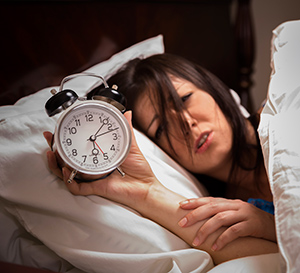New Research Directions on ADHD and Sleep

Sleep problems are a well-known symptom of ADHD. But recent research has prompted some people to speculate whether ADHD may be caused by a sleep disorder, or even that ADHD is a sleep disorder. While such speculation may be a bit rash, given the early-stage of this research that is inconclusive at this point, it’s a development we are watching with interest.
The effects of sleep deprivation―irrespective of ADHD―to both physical and mental health has long been recognized and studied. Sleep that is either too brief, interrupted, or disturbed has been associated with deficits in attention, learning and memory, and higher-order cognitive processes, such as executive function and decision-making. Impaired sleep has also been shown to affect the expression and management of emotions, and to be associated with disorders such as major depression and PTSD. Poor sleep habits affect self-regulation and -control, which is a critically important function impaired by ADHD symptoms.
What’s new
Research in 2010 investigated sleep rhythms, sleep-onset insomnia (known as SOI, in which falling to sleep is delayed by anywhere from one to four hours) and fluctuations in melatonin (a hormone important in the regulation of biorhythms and triggering sleep) in adults with ADHD, prompted a host of additional research on the subject. Then one of the authors from the 2010 study, Sandra Kooij, MD, PhD, presented findings at the September 2017 European College of Neuropsychopharmacology Congress in Paris, and now there’s a lot of “buzz” around ADHD and sleep.
Dr. Kooij has suggested the connection between your ADHD and your biological clock may be through the neurotransmitter dopamine, which is typically deficient in people affected by ADHD. The stimulant medication often prescribed for ADHD increases dopamine, which is considered a “day hormone,” while melatonin is the opposite, triggering sleep.
"So here we are getting closer to understanding how daytime dopamine, which is low in ADHD, and delayed melatonin function at night may be two sides of the same coin,” says Dr. Kooij.
The findings
Adults with ADHD and SOI:
- Had their onset of melatonin an average of 1.5 hours later than normal, which correlated with falling asleep much beyond their bedtime
- Had movement patterns and temperature fluctuations that occurred later than normal within the 24-hour time frame
This research is early and does not yet meet the requisite Levels of Evidence for interventions, as developed by CHADD’s Professional Advisory Board. The researchers will next experiment with supplements of melatonin in different doses and times in the evening, to determine whether SOI will respond effectively to such treatment.
What can you do?
- Make sure your doctor knows about your sleep experience and habits both during the time of diagnosis, as well as during treatment and follow-up.
- Although melatonin can be obtained over the counter, it is not yet approved as treatment for ADHD or SOI; doses, timing, and purity have not been determined. Speak with your doctor before starting melatonin or any other sleep aid.
- But you can practice good sleep habits:
- Avoid screen time and electronic devices (including TV) at least an hour prior to bedtime.
- Dim your house lights an hour in advance of bedtime (melatonin is secreted by the pineal gland in response to the amount of light received by your eye’s retina).
- Try to go to bed at the same time and wake at the same time consistently every day.
- Keep your evening meal small, and eat at least three hours before bed time.
- Get some exercise earlier during the day.
- Check out other tips at ADHD, Sleep and Sleep Disorders.
Has falling asleep at bedtime been a challenge for you?
You toss and turn, finally falling asleep around 3 a.m., but you have to get up by 6 or 7 a.m. Then your whole day is plagued by inattention and disorganization. This is the curse of ADHD. But researchers are beginning to re-think the relationship between ADHD and sleep. Read on to find what this could mean for you.
